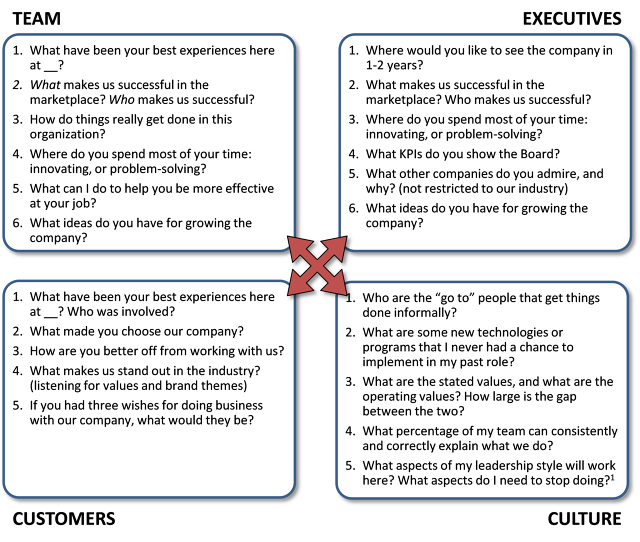
How can marketers navigate an “always on” digital world? Can we achieve greater balance and control of our work and personal lives?
Yes we can! At least according to Lisa Nirell in her latest book “The Mindful Marketer”.
Part self-help book, part management manual, The Mindful Marketer is packed with practical and useful advice for senior marketers of all stripes.
Drawing wisdom from diverse sources—Buddhism, organisational behaviour, psychology, digital marketing and much more—it covers the breadth and depth of scenarios in the working life of a marketer.
Covering everything from the dangers of the digital age to management of one’s personal energy and working harmoniously with other senior executives, each chapter of the book comes with a reflective question (called an Inner Marketing Guru Inquiry) which helps marketers to focus on the key learning points. These include questions such as the following:
- What mindful marketer quality am I willing to explore and practice today?
- What scenarios am I facing where I can practice present moment language and techniques?
- What is the best strategy for my team to earn the CFO’s trust and confidence?
- Where can I start a mindful revolution in my organization?
Let us dive into the key lessons in each section.
1) Distractions and Disruptions
The first section of the book paints a sordid picture of what marketers face in a data-driven digital world.
From the “Wild West Web” to Big Data, marketing ROI, and multitasking, Nirell describes why “business-as-usual” is not a sustainable option for marketers seeking greater balance in their working lives.
So what are some of the challenges faced by marketers today?
- The “democratized web” is challenging traditional businesses, and empowering increasingly vocal consumers;
- The Digital Intrusion Movement (DIM) characterised by our always-on smartphones, tablets and laptops, is interfering with our personal and organizational effectiveness. We end up mindlessly multi-tasking and become less productive;
- Big data is turning out to be a big disappointment due to the lack of marketing intuition to interpret the data—Garner Group has coined big data as hype;
- The roles, data, and content between marketing and sales functions have become increasingly blurred, resulting in possible conflicts;
- Traditional marketing ROI indicators like qualified lead volume and pipeline velocity lack depth. These need to make way to broader indicators like “customer experience” and net promoter scores.
To reduce these stresses, Nirell suggests embracing mindful practices both individual and communal. The first are mindful marketing habits.
2) Mindful Marketing Habits
To optimise our work and personal lives, marketers should bring more balance, presence and mindfulness into our daily habits. This can be achieved by adopting the “precepts” of our Inner Marketing Guru (inspired by Buddhist philosophy), namely:
- Attaining mindfulness—the art of paying attention to several elements such as our body, emotions and mind.
- Accepting the dharma or true nature of things.
- Having the right levels of energy by acknowledging “low energy” situations (eg negative or draining interactions), choosing to release our grip on these situations, and focusing on serving others.
- Gaining happiness in terms of both one’s state of mind and object of happiness.
- Enjoying tranquility via the calming of the body and the mind. This can be achieved through practices like meditation, chanting, breath work, qigong, yoga, and tai chi.
- Being able to concentrate and stay strong during times of turbulence.
- Having equanimity, ie capacity to adapt and be flexible and open to new possibilities.
Beyond these qualities, marketers are also advised to focus on being present—both in behaviour and language. A good way to do so is to use a Check-In Process when we meet with others, by asking the following questions:
- What’s different since our last meeting?
- What worked and what didn’t work in your performance?
- What is the current state of my mind, body, and spirit?
- What are you grateful for?
- What is your intention for the meeting/day/week?
Finally, being mindful also requires marketers to be intentional in designing their work spaces, and to adopt a more holistic approach in planning and decision-making. This could include adopting the Performance Accelerant Model to raise one’s awareness and improve critical thinking (see figure below from Lisa Nirell).

Beyond adopting personal mindful marketing habits, you should also look at your role in the community.
3) A Mindful Marketer’s Community
The concluding section of The Mindful Marketer expands upon the discipline of mindfulness beyond the individual marketer to include his or her peers, bosses, colleagues and customers.
Some of the key insights from this section include:
- Setting up a Customer Advisory Board (CAB) comprising committed customers to help firms accelerate innovation, deepen customer relationships and provide value-added forums for customers and industry allies alike;
- Understanding the concerns and interests of CEOs by becoming a Super CMO who is highly customer focused, persuasive and agile.
- Learning to speak the language of CFOs and Sales VPs, both of which are more concerned with financial numbers like revenue, costs, and profitability per customer.
- Forming an alliance between marketing and IT by establishing collaboration protocols, agreeing on how customer data will be collected, analyzed and acted upon, and being candid with each other.
- Working as leaders both within and outside one’s organizations. This could be achieved by adopting the five qualities of being, namely: Acceptance, Aliveness, Articulateness, Aggregation, and Adaptability.
Lastly, Nirell encourages marketers to be mindful revolutionaries by putting pen to paper. This can be done via developing a communication and implementation plan incorporating the following steps:
- Rehearsing and visualising how you will communicate your initiative or vision. This should consider the differences between internal and external marketing approaches.
- Hire the right people to do the job. They should include data scientists, content marketing experts, community managers, and online marketing gurus.
- Write the plan.
- Create the structure to succeed – both individual and organisational.
- Design a balanced marketing programme incorporating past, present and future thinking on the matter.
- Develop courage – and be willing to get fired!
Achieving Your Marketing Zen
Deftly weaving spiritual insights with modern management practices, The Mindful Marketer is a refreshingly original read in a business book marketplace filled with numerous “me-too” digital marketing or behavioural economics books. I love how it both zooms into the individual marketer’s personal well-being and zooms out into his or her circles of concern and influence.
Let me end with one of my favourite quotes taken from the book:
“It only takes a reminder to breathe, a moment to be still, and just like that, something in me settles, softens, makes space for imperfections. The harsh voice of judgment drops to a whisper and I remember again that life isn’t a relay race; that we will all cross the finish line; that waking up to life is what we were born for. As many times as I forget, catch myself charging forward without even knowing where I’m going, that many times I can make the choice to stop, to breathe, and be, and walk slowly into the mystery.”—Danna Faulds
Lisa Nirell, Author of “The Mindful Marketer”


Many types of subwoofer are available inside market today.
Keep planned that because from the smaller size, they are going to not
have the ability to produce the lower bass sound
that tower loudspeakers can. It involves adjusting the average person instruments volume, frequency, panning, effects, along with other
levels so that the focus is about the sound
which every one of them make together.